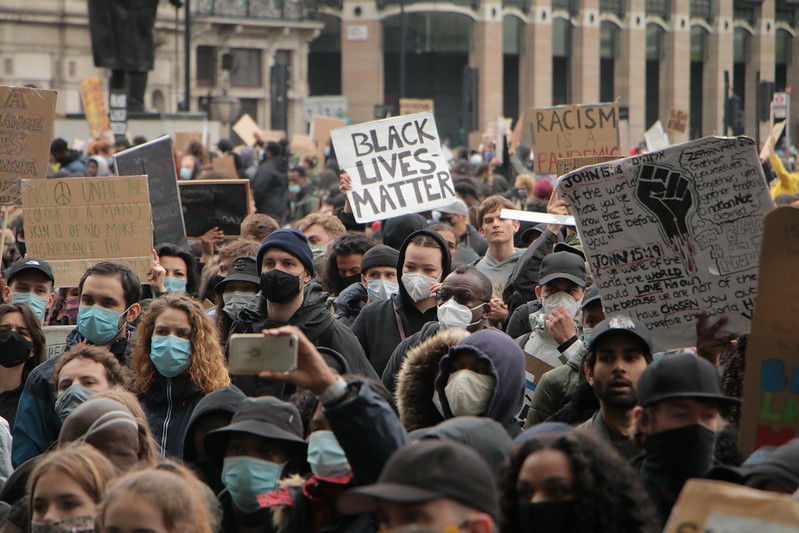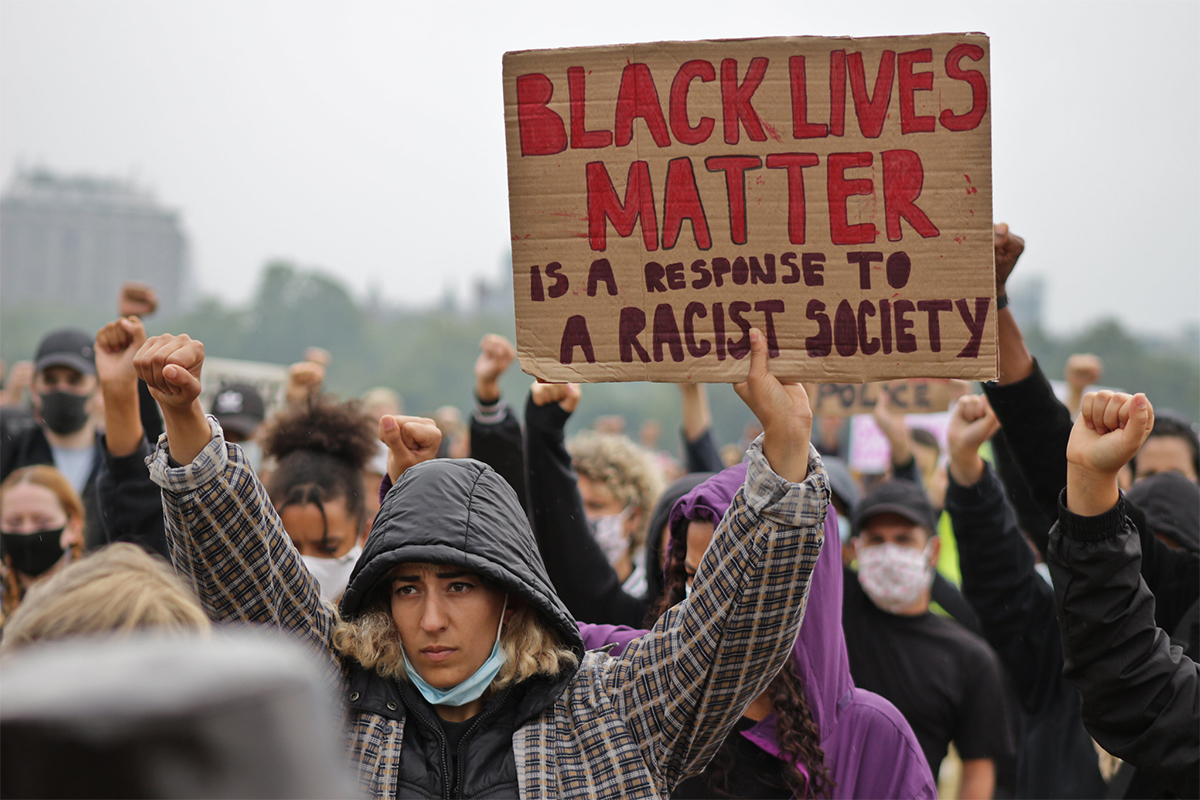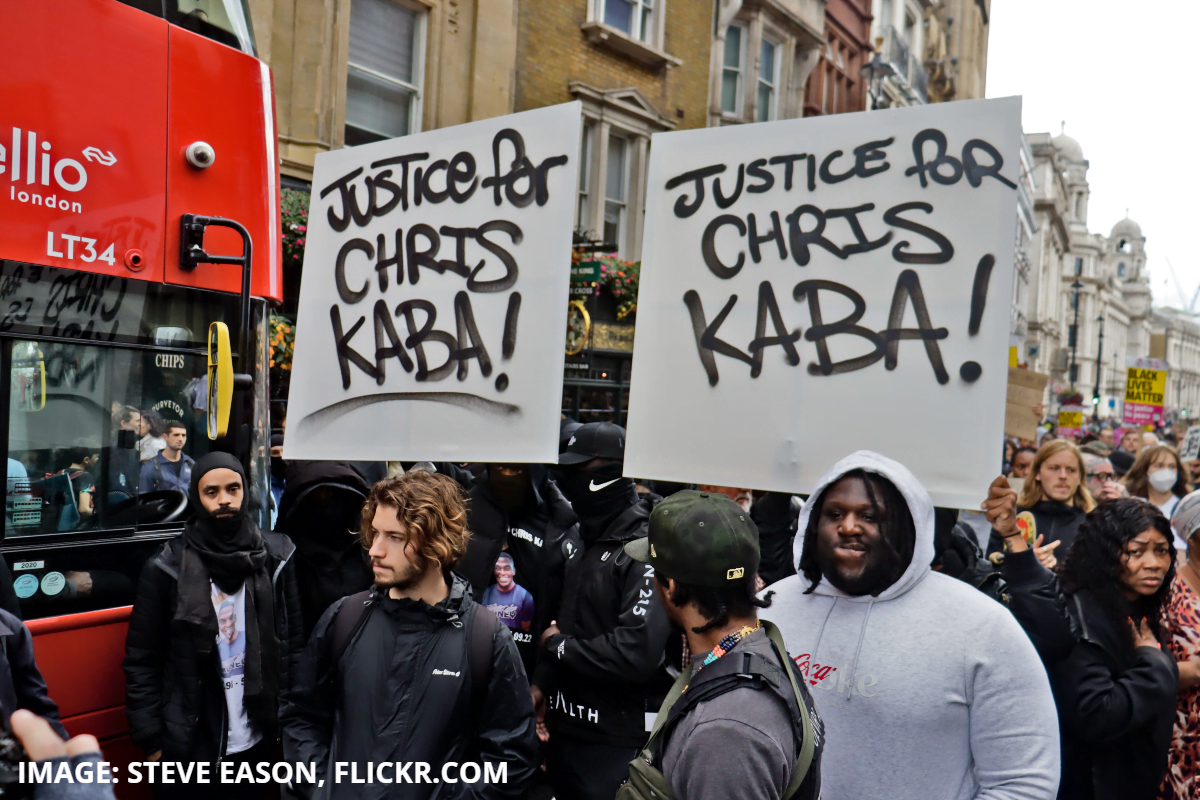Last week, Chris Kaba – a young black man from London – was gunned down by the police in Streatham. The Independent Office for Police Conduct (IOPC) has since launched a homicide investigation into his death.
Details have been slow to emerge, with the Met dragging their feet to suspend the officer involved; not releasing footage of the fatal shot; and potentially kicking the investigation into the long grass. This will undoubtedly fan the flames of indignation towards the police.
What we do know, at the time of writing, is that after being cornered by the police, unable to move, Kaba was shot through the windscreen of a car that did not belong to him.
The 24-year-old father-to-be is the latest in a long and lamentable line of unarmed black men whose ‘crime’ is simply the colour of their skin.
The firearm officer in question clearly assumed guilt on behalf of Kaba, became trigger-happy, and robbed a young man of ever seeing his unborn child.
Such are the ramifications of a police force that believes it can act with impunity – and which has become increasingly emboldened to carry out more racially-motivated stop-and-searches.
Only this time there was no search.
The more things change…
 The murder of Kaba coincides with a change at the top of the Met Police, as Sir Mark Rowley takes over the role of Commissioner, following the resignation of his predecessor, Dame Cressida Dick.
The murder of Kaba coincides with a change at the top of the Met Police, as Sir Mark Rowley takes over the role of Commissioner, following the resignation of his predecessor, Dame Cressida Dick.
Dick stepped down in the wake of a slew of scandals that have eroded public trust in the Met: from the murder of Sarah Everard by a serving offier; to the sharing of vile, misogynistic messages between officers at Charing Cross police station; to the case of ‘Child Q’ – a black schoolgirl who was subjected to a traumatising stripsearch by police in Hackney, London.
The new Met Commissioner has set out a plan of priorities, in an attempt to indicate that a ‘new’ direction is underway.
Rowley has stated that his first task will be for the Met Police to enable people to pay their respect to the Queen; and then to begin a journey of reform, in order to renew policing by consent.
In other words, a potential homicide carried out by an officer against a black man is deemed less of a priority than overseeing a pompous funeral that will come at great cost to taxpayers.
At the same time, we can expect that the Met’s ‘journey’ will lead nowhere. After all, since being placed under ‘special measures’ earlier this year, and coming under new management, no fundamental difference has been made to the safety or security of ordinary people – particularly people of colour.
No matter what superficial steps are taken, the Met remains institutionally racist. And no amount of hollow words will stem the tide of anger that workers and youth feel towards everything the police represents.
As the old saying goes: the more things change, the more they stay the same.
Radio silence
In amongst the barrage of flag-waving propaganda over the last week, news of Kaba’s death has passed many by. Instead, our ‘free’ press has seen nothing but wall-to-wall coverage about a family of royal parasites.
The official account of Black Lives Matter UK has even been censored, on grounds of breaking ‘community guidelines’ for publicising the murder of Chris Kaba.
We are being censored by @Meta and have been for some time now. We’ve received no response about why we are prevented from posting and sharing content.
Apparently sharing posts that raise awareness about police brutality goes against “community guidelines”. pic.twitter.com/nTtdAvzaRO
— #BlackLivesMatterUK (@ukblm) September 8, 2022
In spite of this, thousands protested in central London last Saturday, chanting and carrying signs reading ‘Abolish the Met’ and ‘No justice, no peace’.
Scandalously, the mainstream media even attempted to present this protest as a march in memory of the recently-deceased monarch, with one Sky News presenter embarrassingly speaking of the “incredible sight” of those gathered to share “their memories of the Queen”, as well as “their good wishes for the new King”.
There are clearly no depths to the cynicism of the establishment.
People are marching to Scotland Yard to demand justice for #ChrisKaba, who was murdered last week by the Met police.
Sky News tells viewers they are well wishers on the way to Buckingham Palace to pay tribute to the Queen. pic.twitter.com/accVwVX0AP
— Saul Staniforth (@SaulStaniforth) September 10, 2022
No justice
 Met chiefs have offered plenty of hand-wringing, with Assistant Commissioner Amanda Pearson stating that she “absolutely understands that this shooting is a matter of grave concern, particularly for our black communities”.
Met chiefs have offered plenty of hand-wringing, with Assistant Commissioner Amanda Pearson stating that she “absolutely understands that this shooting is a matter of grave concern, particularly for our black communities”.
Of course there is ‘grave concern’. Police brutality and racism looms large over black and ethnic minority communities. And Kaba’s death is one amongst countless of other cases.
Lest we forget Oladedji Omishore, who died falling into the Thames after being tasered by the Met whilst enduring a mental breakdown. To add insult to injury, Omishore’s family have been deprived of the dignity of an investigation.
These deaths are the direct consequence of criminalising young black people from childhood, followed by a – often tragically short – lifetime of police harassment and racial profiling.
But what really concerns the Met and the rest of the establishment is not the racist murders and repression by the police, but the social explosions that they could ignite.
After all, it was only eleven years ago that Mark Duggan was murdered in Tottenham, north London, in a very similar fashion, sparking riots and protests that spread like wildfire across the country.
And the rancid and reckless actions of the police – combined with the endless attacks on living standards due to the crisis of capitalism – are preparing the conditions for similarly explosive events today.
Abolish capitalism
 Millions of workers and youth are not interested in ‘building bridges’ with the murderous Met.
Millions of workers and youth are not interested in ‘building bridges’ with the murderous Met.
Instead, day by day, more and more are realising that there can be no justice under capitalism for Stephen Lawrence, Nicole Smallman and Bibaa Henry, and all the other victims of the state’s systemic racism.
Between 2017 and 2021, complaints of racism from London police officers against their own colleagues totalled more than one a week on average. Yet only 5% of those disciplined for racism towards their peers were sacked.
This is not a ‘culture’ that can be fixed. It is not a case of a few ‘bad apples’. This is an institution that is rotten to the core, not one that can be meaningfully reformed.
The role of the police is not to rule by consent, but to defend a system that relies on division, bigotry, and racism, in order to protect the profits, property, and privileges of the elites.
To deliver justice for those who fall victim to the henchmen of the state, therefore, we must link the struggle against racism and repression to the struggle against the system that spawns it – channelling our fire and fury not only into abolishing the Met, but into the capitalist system itself.






